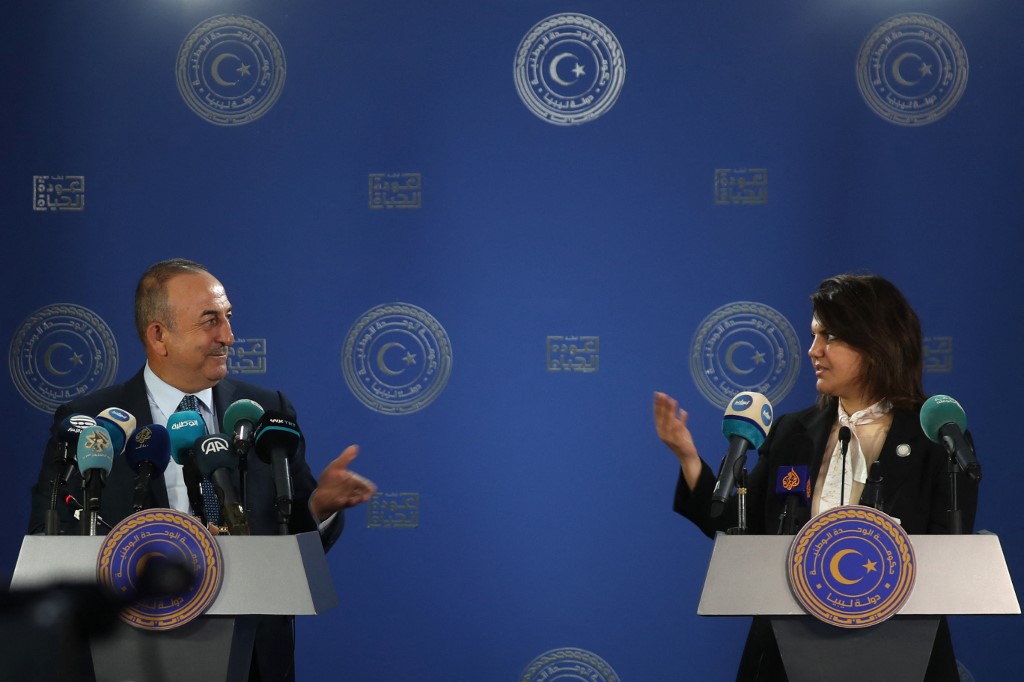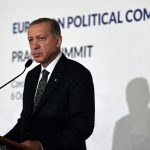The Russian war on Ukraine has led to an energy crisis in Europe, with the recent attacks on Nord Stream, two key pipelines carrying Russian gas to Europe under the Baltic Sea, highlighting the vulnerability of underseas pipelines in the West. Turkey has been an important energy corridor for Russian gas since the launch of the 910-kilometer Blue Stream pipeline in the early 2000s. The pipeline runs under the Black Sea, linking Russia and Turkey, with Turk Stream’s first line supplying Turkey and the second line transporting natural gas to the Balkans and Central Europe. The Turkish government is now planning to transport disputed eastern Mediterranean gas to Europe by land.
Turkey has continued its search for oil and gas in the contested eastern Mediterranean but faces many challenges, with an ongoing dispute between Greece and Turkey on maritime boundaries in the Aegean and eastern Mediterranean. Turkey’s drilling activities near waters claimed by the Turkish Republic of Northern Cyprus (KKTC), recognized only by Turkey, and both Greece and the Republic of Cyprus have angered European Union member states, especially Greece. Moreover, Turkey’s maritime deal with Libya’s Tripoli government in 2019, which demarcated the countries’ shared maritime borders, allows Turkey to have a larger continental shelf in the Mediterranean Sea, further complicating Turkey’s maritime dispute with its Mediterranean neighbors. Despite criticism from EU members and the international community, Turkey has gone to great lengths to ensure its maritime deal with Libya is legal. In this regard Turkish Foreign Minister Mevlüt Çavuşoğlu and Najla al-Mangoush, foreign minister of Libya’s UN-backed Government of National Unity, signed a deal in the Libyan capital on Monday, allowing for exploration for oil and gas in Libya’s Mediterranean waters, three years after the maritime borders deal.
“We’ve signed a memorandum of understanding on exploration for hydrocarbons in Libya’s territorial waters and on Libyan soil, by joint Turkish-Libyan companies,” Çavuşoğlu said at a press conference in Tripoli. Al-Mangoush also emphasized the importance of the deal, especially in light of “the Ukrainian crisis and its repercussions” for energy markets. Greek Foreign Minister Nikos Dendias and Egyptian Foreign Minister Sameh Shoukry both challenged the legitimacy of the deal and agreed to meet on Sunday for consultations, according to France24.
Turkey and Libya have a long history dating back to Ottoman times, and since the 1970s Libya has been an important trade and investment destination for Turkey, in particular for Turkish construction firms, which completed billions of dollars of projects during the rule of Muammar Gaddafi. Ankara was reluctant to lose out on the business progress made in Libya following Gaddafi’s fall in 2011 and supported the Government of National Accord (GNA), led by Prime Minister Fayez al-Sarraj, in 2019 against military chief Khalifa Haftar’s Libyan National Army (LNA), backed at the time by Egypt, Russia and the United Arab Emirates. Turkish combat drones prevented Haftar’s seizure of Tripoli in 2019, and since then Ankara has consolidated its political, military and business presence in western Libya.
Of course, Libya remains an important ally for Turkey, but Ankara’s maritime hydrocarbons deal with the Tripoli government is more about Ankara’s presence in eastern Mediterranean waters against powerful states. Greece and Egypt signed a maritime demarcation deal establishing an exclusive economic zone between the two countries on Aug. 6, 2020, after Turkey’s deal with Libya in 2019. Following the discovery of sizable natural gas reserves off the coasts of Cyprus, Egypt and Israel over the past decade, the East Mediterranean Gas Forum (EMGF) was announced in Cairo in 2019. In 2020, Egypt and Greece transformed the EMGF into an international intergovernmental organization by inviting Cyprus, Egypt, Greece, Israel, Italy, Jordan and Palestine to join. Turkey was excluded from the forum. The main aim of the EMGF is to export Mediterranean gas to Europe and to reduce EU countries’ energy dependence on Russia. However, Egypt and Greece share no maritime borders, and Turkey’s maritime borders deal with Libya further complicated collaboration between these countries in the eastern Mediterranean. The government in Ankara says the cheapest and most secure way to transport Mediterranean gas to Europe can only be achieved through Turkish territory.
Tensions are currently running high between Turkish President Recep Tayyip Erdoğan’s Justice and Development Party (AKP) and Kyriakos Mitsotakis’s government over Athens’ alleged militarization of Aegean islands and Turkey’s maritime boundaries with the Greek islands off its Aegean and southern coasts. Greece and Israel both opposed Turkey’s activities in the eastern Mediterranean, but the AKP managed to restore relations with Israel following a decade-long rift. The Israeli government on Sunday approved the appointment of Irit Lillian as Israel’s new ambassador to Turkey, marking the first ambassadorial appointment since 2018.
Despite political tensions between Israel and Turkey over the issue of Palestine, the two countries have enjoyed an increase in trade in recent years. Several international media outlets report that Israel has been importing as much as three-quarters of its oil from Iraq’s semi-autonomous Kurdish north, causing a rift between Erbil and Baghdad, while northern Iraqi oil exports are being shipped from Turkey’s Mediterranean port of Ceyhan and going to Israel.
International experts are commenting that one of the most important factors driving the rapprochement between Israel and Turkey is natural gas, which Israel discovered off its coast in 2010. Turkey is the most economically viable transport destination to get Israeli gas to Europe. Turkey’s recent energy deal with Libya and Ankara’s normalization of ties with Israel makes Turkey an important energy corridor since Russia has reduced its natural gas exports to Europe since the war with Ukraine began earlier this year.
By: Türkmen Terzi
Source. Turkish Minute



